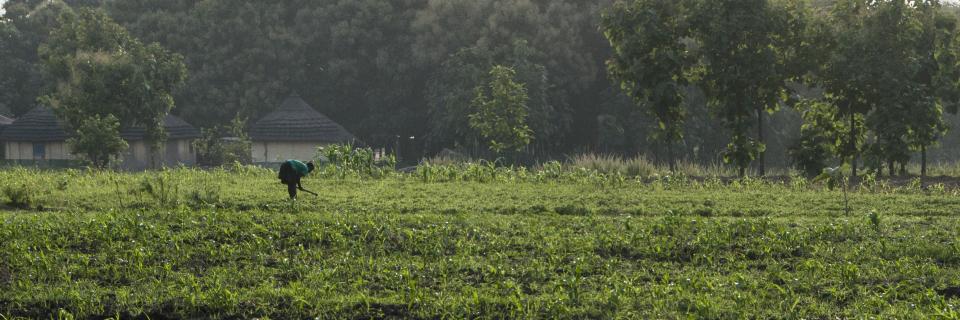Maryknoll Office for Global Concerns was one in a list of a hundred organizations that called on the President, the House, and Senate for International Climate Financing in the 2023 United States Budget
December 5, 2022
Read the letter as a PDF as sent to the President, House, and Senate.
On behalf of the millions of members and supporters of our development, faith-based, environment and conservation, health, science, foreign policy, and business organizations, as you work to finalize an FY23 appropriations package, we urge you to protect and support increased funding for U.S. foreign assistance overall and international climate finance within it.
Specifically, we call on you to retain the $64.5 billion for U.S. foreign assistance programs in the House and Senate FY23 appropriations bills. Within that, we urge you to seek the highest possible amount for directly appropriated international climate finance to get as close to President Biden’s $11.4 billion commitment this year as possible, as many of our organizations advocated earlier this year1. This includes delivering no less than the $3.76 billion included in S. 4662, the Senate FY23 State, Foreign Operations, and Related Programs appropriations legislation.
In particular, we urge that you dedicate the following funding for each account and line item:
Bilateral Economic Assistance, environment programs: $1.275 billion, as included in S. 4662. Of the funds appropriated for bilateral programs, the following amounts should be made available for the following activities:
- Adaptation: $550 million
- Renewable Energy: $425 million
- Sustainable Landscapes: $300 million
Multilateral assistance: $2.485 billion, as included in S. 4662. Of the funds appropriated for multilateral programs, the following amounts, as included in the House and Senate appropriations bills, should be made available for the following:
- Green Climate Fund (GCF): $1.6 billion
- Adaptation Fund and Least Developed Countries Fund (LDCF): $100 million
- UN Framework Convention on Climate Change (UNFCCC) and Intergovernmental Panel on Climate Change (IPCC): $21 million
- Montreal Protocol Multilateral Fund (MLF): $64 million
- Global Environment Facility (GEF): $150.2 million
As we have stated before, investments in international climate finance are key to U.S. credibility and influence on the global stage. Investing in climate change solutions internationally also benefits people in the U.S.
Many of our developing country allies and partners, particularly the most climate vulnerable, have made it clear that strengthening their ability to address the challenges of climate change is an overriding – even existential – national priority. Where the U.S. should be leading the effort to respond, our support has lagged significantly behind that of other developed countries. Our failure to lead and unwillingness to help other countries address their most pressing challenges have not gone unnoticed and compromise U.S. influence, leadership credibility, and its ability to secure reciprocal cooperation on our own national priorities.
Developing countries face disproportionate and destabilizing impacts from climate change and increasingly severe extreme weather events. Investing in the capacity and ability of developing communities to build their resilience and withstand the negative effects these changes are having on their food and water security, social stability, and human lives and livelihoods enhances U.S. national security. Specifically, these investments can address the causes of instability and fragility, including more severe and frequent weather hazards, decreased agricultural production and food security, and increased water scarcity. Such preventative measures also greatly mitigate later costs in U.S. humanitarian aid.
Financing for international climate programs serves vital U.S. interests by promoting global stability and security, creating economic opportunities for U.S. businesses and workers, alleviating global poverty and food insecurity, protecting investments in international development, complementing global health efforts, and ensuring significant cost savings by promoting resilience and disaster preparedness. We stand ready to assist you in ensuring that these resources achieve their goals and to drive home the message that U.S. international investments are in support of U.S. interests.
See the full list of signatories here.
Photo courtesy of Jesuit Refugee Services, East Africa

